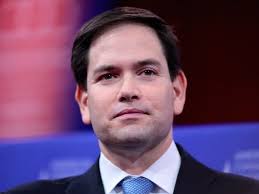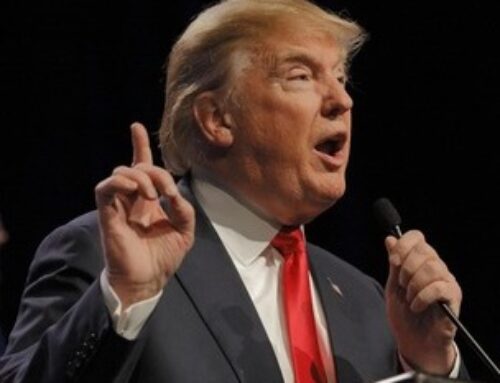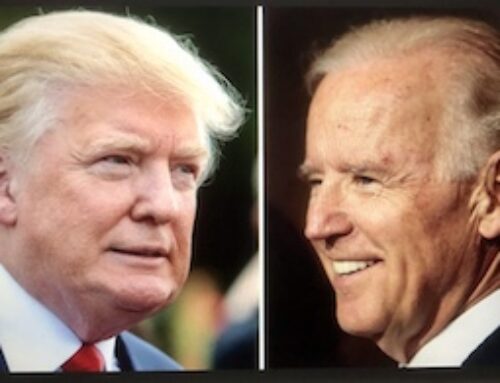
Prior to the campaign, I had great respect for Jeb Bush because I considered him a man of integrity who did an excellent job as governor of my state. I was also impressed by his plain-spokenness and humble demeanor. However, from the outset of the debates, he seemed weak and uncertain, even at times confused. He seemed both unprepared and daunted by the occasion.
Early on, I was also impressed with John Kasich, having remembered him as a conscientious congressman and an interesting and thoughtful Fox News host. I was also impressed with his achievements as Governor of Ohio. Yet in the debates he struck me as overly scripted; moreover, what I remembered as his charming, low-key manner seemed to have been replaced by strained petulance.
My impression of Donald Trump has changed several times. At the outset, he seemed to prefer grandiose sloganeering to substantive discussion, yet despite that I found his contempt for political correctness refreshing. But then his insulting of John McCain’s heroism followed by his refusal to offer a meaningful apology made me lose respect for him. Later on, I became disturbed by other candidates’ attacking Trump rather than presenting their ideas for solving the country’s problems. Since then, I have decided that though he is given to overstatement, his main positions on issues have merit. At this moment, I am cautiously impressed, though still ambivalent.
Before discussing the other candidates, I should note that my perspective is strongly influenced by my experience as a college professor—specifically, by my teaching of logic and rhetoric.
The most consistently excellent debater, in my view, has been Carly Fiorina. She has displayed a commanding grasp of all issues, both foreign and domestic, and her positions have been well reasoned and, given the time constraints, admirably supported. Moreover, her criticisms of other candidates have been as witty and graceful as they have been effective. (Her criticisms of Hillary Clinton have been particularly devastating.) Whatever the cause of her low position in the polls, it is certainly not any weakness of substance or style.
As a debater Ted Cruz has few equals, and from a technical standpoint, I can find no fault with his performance in the debates or, for that matter, in the numerous interviews I have watched. Yet there is something about his manner that troubles me. His delivery seems overly stylized, even contrived, so that even when his points are logical and persuasive, they seem too mechanical. He also seems, on occasion, to patronize his audience. My impression would not dissuade me from supporting Cruz if he were to win the nomination, but it is enough to make me lean away rather than toward him as a candidate.
Which brings me to the candidate I am most impressed by—Marco Rubio. He is as articulate and in command of the issues as Fiorina and Cruz, yet surpasses both of them in the emotional quality of his delivery. He embraces, and shares, his convictions with genuine passion. That characteristic, combined with his youth and good looks, make him a twenty-first century version of the young John F. Kennedy.
All these qualities are forcefully displayed in a speech titled “We Are a Nation of Haves and Soon-to-Haves” that Rubio gave on the Senate floor just before Christmas, 2011.
The theme of the speech was Rubio’s concern over the “lack of urgency” in government about serious issues. He cited first the failure to solve Medicare’s problems. Then he addressed the divisive rhetoric that he says blames the success of some Americans for the failure of others, a thinly disguised argument, in his view, for the socialist program of surrendering control over people’s lives to the government.
That is precisely the kind of failed program, he argued, that has time and again driven people to flee their countries and brave great hardships to come to America. And yet it is the same program that in 2011 was failing again, ironically in America. As Rubio put it, Obama became president, was then given everything he asked for by a compliant Congress, and the result was that a bad situation became worse.
In the same speech, Rubio expressed concern that the government’s oppressive tax code was hurting everyone, especially middle and low income citizens; that the dramatic increase in government regulations was stifling the initiative of those who wanted to start new businesses; and that the national debt was spiraling and needed desperately to be brought under control.
That speech by Marco Rubio, still available on YouTube, is even more timely today than it was in 2011. And it reveals very clearly the qualities that are making me lean strongly toward candidate Rubio.
Copyright © 2016 by Vincent Ryan Ruggiero. All rights reserved

